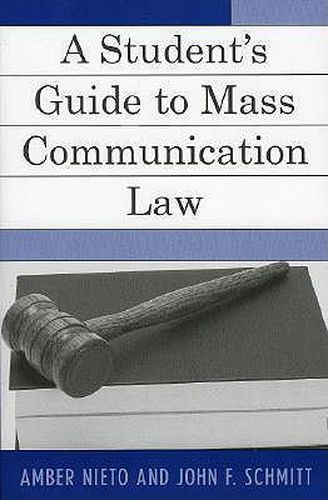Readings Newsletter
Become a Readings Member to make your shopping experience even easier.
Sign in or sign up for free!
You’re not far away from qualifying for FREE standard shipping within Australia
You’ve qualified for FREE standard shipping within Australia
The cart is loading…






A unique learning tool for students in journalism and mass communication, A Student’s Guide to Mass Communication Law is written for students by a top student. Amber Nieto and her professor John F. Schmitt-who also brings his experience as a lawyer and a journalist-have created an easy-to-read study guide to be used alongside any main textbook on media law or communication law. An outline format allows for quick reference and for instructors to choose material useful to their courses. Including a glossary and the text of the U.S. Constitution, this concise guide covers key areas such as free speech, freedom of the press, censorship, the student press, defamation and libel, privacy, intellectual property, fair trial issues, shield laws, freedom of information, obscenity, electronic media regulation, media ownership, and advertising. A Student’s Guide helps students understand textbook material and serves as an ongoing refresher course on the basics of mass communication law and media law.
$9.00 standard shipping within Australia
FREE standard shipping within Australia for orders over $100.00
Express & International shipping calculated at checkout
A unique learning tool for students in journalism and mass communication, A Student’s Guide to Mass Communication Law is written for students by a top student. Amber Nieto and her professor John F. Schmitt-who also brings his experience as a lawyer and a journalist-have created an easy-to-read study guide to be used alongside any main textbook on media law or communication law. An outline format allows for quick reference and for instructors to choose material useful to their courses. Including a glossary and the text of the U.S. Constitution, this concise guide covers key areas such as free speech, freedom of the press, censorship, the student press, defamation and libel, privacy, intellectual property, fair trial issues, shield laws, freedom of information, obscenity, electronic media regulation, media ownership, and advertising. A Student’s Guide helps students understand textbook material and serves as an ongoing refresher course on the basics of mass communication law and media law.